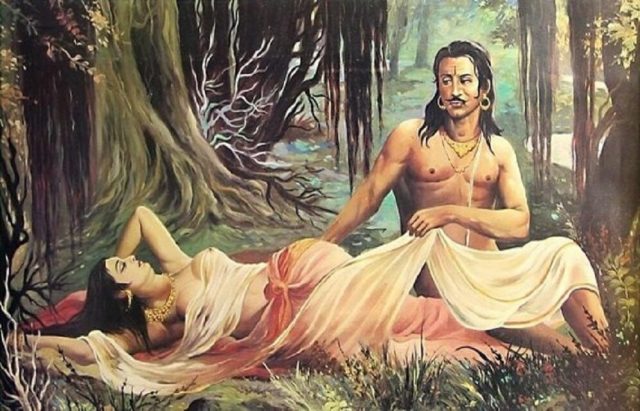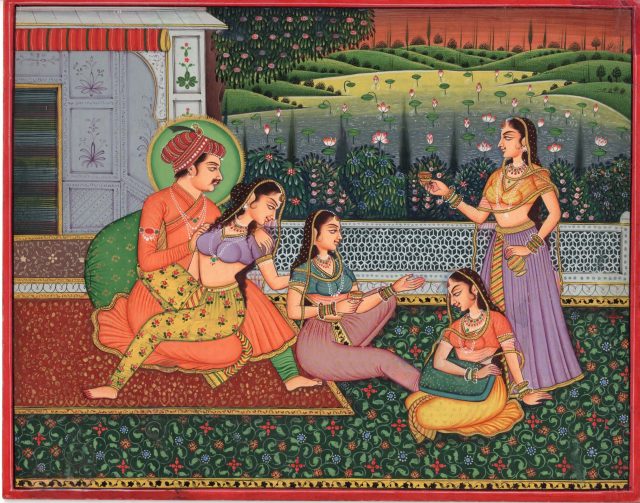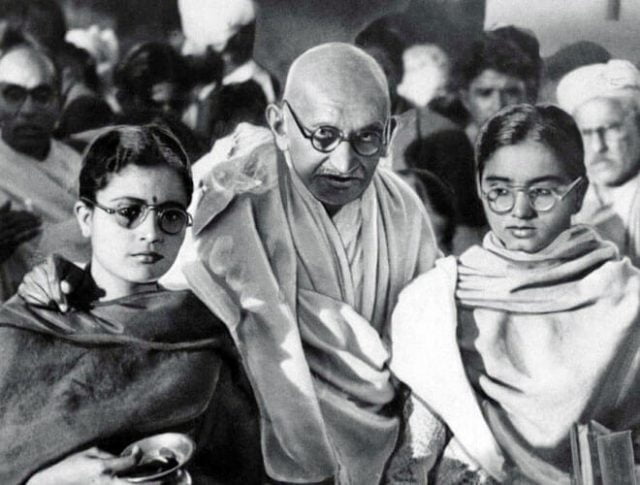India is indeed a land of contrasts- it is the land of the Kamasutra and erotic temple sculptures, and at the same time, a land where “purity” and “virginity” (of a woman) are given a great deal of importance and becomes something of a bargaining chip at the time of marriage.
In order to understand why Indians tend to make a big deal out of the concept of virginity, let us take a look at its history in the Indian subcontinent:
Ancient India
In the Vedic times, sex was not taboo, and it appears that the concept of a woman’s hymen being intact was not considered to be a measure of her “purity.” People were quite open with regard to sex, with various instances in the Mahabharata of characters indulging in sex in the open, premarital sex, incest, and so on.

It is interesting to note that women and men had equal autonomy over their bodies and desires. An episode from the Mahabharata’s Adiparva states that “if an unmarried woman expresses her desire to have sex, it must be fulfilled.”
Read More: What To Expect When You’re Expecting Oscars 2018 Edition
Medieval India
India had something of a double standard towards virginity in the medieval time, especially with regard to the various sultanates and empires that ruled from Delhi.
While it was considered a sign of a king’s virility to have a huge harem, his wives had to be virgins at the time of marriage (unless they were widows), as they were often little more than the value of the lands and armies they brought with them to amalgamate into their husband’s kingdom.

At the same time, the slave women who were inducted into the harem need not necessarily be virgins- in fact, a reputation for sexual prowess given by previous owners increased their value.
Modern India
It is interesting to see that modern India has arguably the most conservative approach towards virginity.
Virginity is seen as directly linked to moral values and principles, with several instances of “virginity tests” of women being conducted in various parts of India cropping up in the news. Matrimonial ads have also been known to explicitly state that the bride being sought MUST be a virgin.
Even though the attitude of the current generation is slowly changing, with the separation of one’s personal virtues from the state of their “virginity,” there are also several women in urban areas who undergo “rehymenation”- a surgical procedure to reattach the broken hymen- after a failed love affair, so that they will still be “pure” in the eyes of their husband.
Why is this so?
It can be said that to a large extent, the British colonialisation of India played a role in the more conservative attitude of virginity that we see today.
The Victorian Age was said to be the peak of the British Empire, and Queen Victoria was often lauded as being a virtuous woman devoted to her husband and family- a role model for women everywhere.
This led to the rise of extreme conservatism with regard to the topic of sex and virginity- there were very strict judgements passed by society on women who were not virgins at the time of marriage- she was referred to as “ruined,” and if she was caught with a man, she would be forced to marry him soon after.
The huge British presence in India at the time led to the percolation of this attitude to the natives. Also, it must be noted that several Brits indulged in missionary activities in India, where they glorified Christ and the refusal of the desires of the flesh.

Mahatma Gandhi also has been accused of being misogynistic, with highly specific opinions on the “purity” of a woman, and an inclination towards (selective) celibacy. As a major figurehead of the Freedom Struggle that took place all over India, his views were taken very seriously by his followers.
Virginity Today
With the rise of sex education in schools and the easy availability of birth control, Indian youngsters today are developing a more open mindset towards sex, and do not consider virginity to be a necessary quality of their spouse.
The fact that popular culture (movies, novels etc) produced in India is much more open about premarital sex today has added to the gradual removal of its taboo.
We hope that it gradually reaches a situation where people understand that the choice to remain a “virgin” or not is entirely the personal choice of the individual and that no society can dictate what is “proper” for ANYONE in terms of such a personal concept.
Image Credits: Google Images
Sources: Passion Connect, Speaking Tree, Femina
More Recommendations:
Is It Okay For Politicians To Use Unfair Means To Achieve Greater Good? Lord Krishna Says Yes






























So many indian scriptures are misinterpreted …by British….every characters are misinterpreted…..so whoever and all reading this ….report this……some anti Hindus are mAking fools……if you follow these rules….every world will be in dangerous….we are human / conscious beings ….not animal beings!!!!!!!
Are you idiot or what pre marital sex is a sin according to dharamshastra….. don’t spread your liberal agenda….even yajurveda it is written that both husband and wife should be virgin at the time of marriage…..have some shame don’t misguide youth….and u talked about Mahabharata…sir Mahabharata is all about law if karma…kuti also had to bear the karma bad deeds later in Mahabharata…. don’t misguide others pre Marital sex is wrong both morally and scientifically